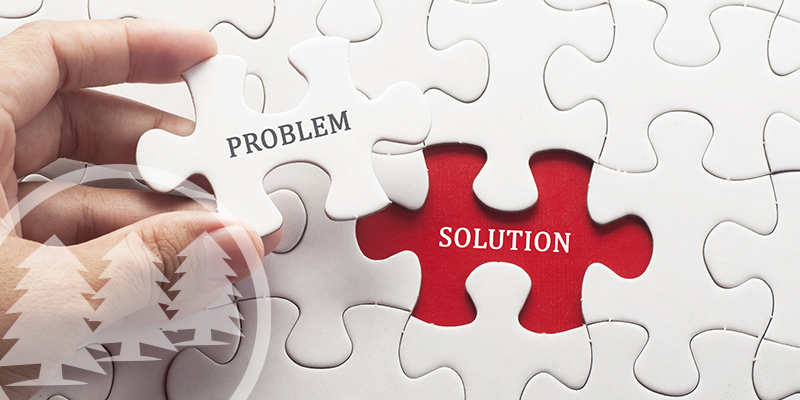Every year, homeowners associations across the country face new challenges in the world of community management. With 2022 just around the corner, what are the expected HOA issues in the new year?
Coming Up Next: Urgent HOA Issues in the New Year
This past year has truly been an eventful one. Not all homeowners associations came out the other end fully intact, with some taking the year’s changes harder than others. The secret to maintaining a strong community, even in the face of hardships and the unknown, is preparation. As the new year approaches, now is the best time to prepare your board for what lies ahead.
1. Virtual or In-Person Meetings
Virtual meetings are one of the more expected new year HOA issues. The COVID-19 pandemic threw the entire world into a tailspin at the start of 2020. By the year 2021, many homeowners associations had gotten used to the effects of the pandemic and adjusted to make room for virtual meetings. But, what does the year 2022 have in store for meetings? Will virtual meetings continue to be the norm?
The future of HOA meetings will likely be a hybrid, with some meetings taking place in-person and others online. Many states have already passed laws allowing corporations to hold meetings and even conduct business virtually, including North Carolina.
Virtual meetings offer the benefit of convenience as well as increased attendance. As for in-person meetings, returning to them may take some getting used to once again. To prepare, review how in-person meetings in your association should go, according to the governing documents.
2. Changes in the Law
Homeowners associations should also expect law changes that will affect how they manage communities. California has already gotten a head start, with a couple of Assembly Bills and multiple Senate Bills passed and set to take effect in the new year. To prepare for these changes, HOA boards should consult their association’s attorney to understand how these new laws will change things for the community. From there, the board can make any necessary adjustments, with guidance from a legal professional.
3. Privacy
Privacy is and has always been important to homeowners. Given that HOAs often have access to owners’ sensitive information, privacy remains a key priority even in the new year. Boards should never reveal confidential information to third parties.
Delinquencies are also a pain point, with many boards believing that releasing the names of delinquent homeowners will embarrass them enough to settle their unpaid dues. But, this is a slippery slope and one that violates privacy laws. It may also be viewed as blacklisting, should the HOA be considered a debt collector under Fair Debt Collection laws.
Another issue with privacy has to do with security cameras. Homeowners associations typically have the ability to install security cameras in common areas, but they should not face any area where residents expect reasonable privacy. This includes changing areas and bathrooms. Associations would also be wise to remind homeowners that their own security cameras should not point at their neighbors’ windows or backyards.
4. Board Fatigue
 Board fatigue is another one of the expected homeowners association issues in the new year. Many boards have already been feeling exhausted thanks to the challenges COVID-19 brought with it. Some board members have resigned as a result, while others have mentally checked out.
Board fatigue is another one of the expected homeowners association issues in the new year. Many boards have already been feeling exhausted thanks to the challenges COVID-19 brought with it. Some board members have resigned as a result, while others have mentally checked out.
Fortunately, you can combat board fatigue by adopting the following tips:
- Opt for shorter meetings to reduce burnout.
- Use virtual platforms to conduct association business (if allowed in your state).
- Empathize with each other.
- Hire a professional HOA management company to pick up the more tedious tasks.
5. Deteriorating Infrastructure
The Surfside condo association collapse made headlines this year, as it was revealed that $15 million worth of repairs were necessary and the condo owners had to come up with the sum through assessments. This event, while tragic, must be a learning opportunity for other HOA boards.
Assets deteriorate over time — it is only natural. Homeowners associations prepare for the inevitable repairs and replacements by setting aside reserves each year. It is imperative that boards update their reserve studies every few years (or have one conducted if they haven’t yet) and make sure to keep up contributions so that the reserves don’t become underfunded.
6. Cybersecurity
Ransomware and phishing attacks are becoming more and more common by the day. In the new year, homeowners associations should prepare themselves by getting familiar with these scams. Boards should learn how to identify phishing attacks when they face one and warn all members not to click on suspicious links. Education is the first step towards ensuring cybersecurity.
7. Maintenance Failures
Common areas, in particular, suffer from deferred maintenance from time to time. More often than not, this is usually the result of insufficient funds or just general neglect. When left unmaintained, common areas could pose a risk to the health and safety of residents and guests. In the end, the association and its board could face legal trouble.
HOA boards should prepare themselves by ensuring common area maintenance is covered in the annual budget. Allocate an adequate amount for this expense, and consider adding a cushion in case a high delinquency rate causes a shortfall.
8. Disputes
 Homeowners associations should expect a rise in disputes between neighbors in the new year. Due to the effects of the pandemic, people are feeling more tired and irritable. Even the smallest of disagreements can escalate into heated arguments.
Homeowners associations should expect a rise in disputes between neighbors in the new year. Due to the effects of the pandemic, people are feeling more tired and irritable. Even the smallest of disagreements can escalate into heated arguments.
Associations should know how to deal with neighbor-to-neighbor disputes. But, that does not mean the board should get involved all the time. Learn to determine when interference is necessary and when you should leave neighbors to hash it out on their own. Generally, it is a good idea to intervene if the dispute involves a protected class, involves rule violations, or if the dispute turns violent.
9. Political Signs
Political signs are also one of the HOA issues in the new year. With elections on the horizon, you will see more homeowners putting up political signs on their property.
To prepare your association, make sure your board understands the law. In some states, HOAs have the ability to completely prohibit political signs, even on private property. It is not a violation of the First Amendment because that only applies to government bodies, which an HOA does not fall under. In other states, HOAs can’t prohibit owners from installing political signs on their private property, but they can impose restrictions when it comes to size and placement.
It is best to review your state and local laws as well as your association’s policy on political signs ahead of the election season. You should also remind your residents of the rules so that you can limit offenders.
10. Advancements in Technology
Technology has certainly come a long way in the span of just a few years. Homeowners associations should take advantage of new technology, such as software and virtual platforms, to aid efficiency in the community. Learning how to use new tech is always scary, but once you get past the initial hurdle of fear, you will start reaping benefits.
However, software is not the only form of new technology that homeowners associations should integrate. As the world shifts to more renewable energy, you will see an increase in homeowners using electric vehicles and installing solar panels. Make your association a more inclusive and attractive community by coming up with policies to adopt these new technologies.
11. Vendor Retention
As the country faces a shortage of workers and materials, it is becoming harder for associations to hire and retain vendors. You can increase vendor retention this new year by maintaining a good working relationship with them. Because of the shortages, you should also expect expenses to rise, so make sure to account for that when creating your annual budget.
12. A New Generation
 Millennials and Gen Z-ers are now becoming homeowners and tenants in HOA communities. As such, you will see more young people getting involved in homeowners associations as well as serving on the HOA board. With this, new ideas for governance will likely come into the fold, which may cause some generational friction.
Millennials and Gen Z-ers are now becoming homeowners and tenants in HOA communities. As such, you will see more young people getting involved in homeowners associations as well as serving on the HOA board. With this, new ideas for governance will likely come into the fold, which may cause some generational friction.
Governing a community is a collaborative effort. Both old and young should be open to each other’s ideas and input for a smoother experience. You will not always get your way, but that is only normal. Compromise is key if you want your community to be successful.
13. A Post-COVID World
More and more areas are returning to normalcy, which means homeowners associations are likely affected, too. Amenities will start to reopen and activities will resume once again. But, there is the issue of whether or not HOAs can require residents to get vaccinated.
Vaccine requirements are trickier to navigate. While it shares some similarities to requiring residents to wear face masks and practice social distancing, mandatory vaccination is another ballgame entirely. The short answer is that HOAs may not be able to legally require residents to get the shot. Health information would need to be involved, which could violate the Health Insurance Portability and Accountability Act.
Instead, your HOA should do what it can to encourage residents to get the vaccine. You may also turn your clubhouse into a vaccination center so residents can easily access the shot without having to go very far.
A Professional’s Touch
There are many HOA issues in the new year, just as with any other year. The best way you can come out the other side unscathed is to make the proper preparations ahead of time. Of course, not all boards have the time or expertise for such a task. This is where an HOA management company can help.
RELATED ARTICLES:
- HOA Political Signs: What’s Allowed?
- Should Remote HOA Meetings Continue Even After The Pandemic Is Over?
- Your Guide To North Carolina HOA Laws






